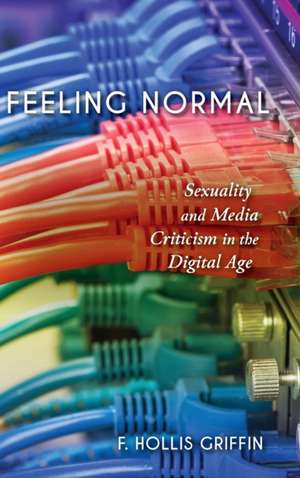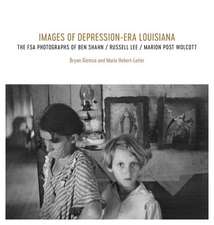Feeling Normal – Sexuality and Media Criticism in the Digital Age
Autor F. Hollis Griffinen Limba Engleză Hardback – 8 ian 2017
"
| Toate formatele și edițiile | Preț | Express |
|---|---|---|
| Paperback (1) | 189.01 lei 6-8 săpt. | |
| MH – Indiana University Press – 8 ian 2017 | 189.01 lei 6-8 săpt. | |
| Hardback (1) | 503.74 lei 6-8 săpt. | |
| Wiley – 8 ian 2017 | 503.74 lei 6-8 săpt. |
Preț: 503.74 lei
Nou
Puncte Express: 756
Preț estimativ în valută:
96.39€ • 100.65$ • 79.60£
96.39€ • 100.65$ • 79.60£
Carte tipărită la comandă
Livrare economică 15-29 aprilie
Preluare comenzi: 021 569.72.76
Specificații
ISBN-13: 9780253024473
ISBN-10: 0253024471
Pagini: 202
Dimensiuni: 160 x 236 x 18 mm
Greutate: 0.45 kg
Editura: Wiley
ISBN-10: 0253024471
Pagini: 202
Dimensiuni: 160 x 236 x 18 mm
Greutate: 0.45 kg
Editura: Wiley
Notă biografică
F. Hollis Griffin is Assistant Professor of Queer Studies and Communication at Denison University where he teaches and conducts research on media studies, cultural theory, and the politics of identity and desire. He has published research in Cinema Journal, Television & New Media, Popular Communication, Quarterly Review of Film & Video, Journal of Popular Film & Television, and the anthology The Companion to Reality Television.
Cuprins
Acknowledgments
Introduction
1. Cities as Affective Convergences
2. The Aesthetics of Banality After New Queer Cinema
3. Commodity Activism and Corporate Synergy on Cable TV
4. Toward an Actually Queer Criticism of Television
5. Wanting Something Online
Afterword: #LoveWins
Selected Bibliography
Index
Introduction
1. Cities as Affective Convergences
2. The Aesthetics of Banality After New Queer Cinema
3. Commodity Activism and Corporate Synergy on Cable TV
4. Toward an Actually Queer Criticism of Television
5. Wanting Something Online
Afterword: #LoveWins
Selected Bibliography
Index
Descriere
Descriere de la o altă ediție sau format:
He illuminates how the limitations of these experiences--while not universally accessible, nor necessarily empowering--are often the very reasons why people find them compelling and desirable.
He illuminates how the limitations of these experiences--while not universally accessible, nor necessarily empowering--are often the very reasons why people find them compelling and desirable.












